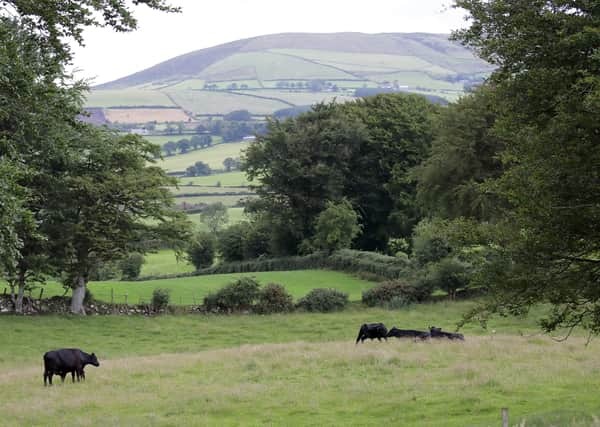A year of climate action lies ahead


With the international climate summit, COP26 being held in the UK in November, the UK government has branded 2021 the ‘Year Of Climate Action’.
The Ulster Farmers’ Union (UFU) is working with our colleagues across England, Scotland and Wales to showcase the work that is being done on farms to reduce greenhouse gas emissions and sequester carbon on farms across the four regions. We are continually highlighting that farmers are part of the solution to climate change and will help make a difference to this huge challenge.
Advertisement
Advertisement
Contrary to some views well-aired in the media, farmers can do this without reducing livestock numbers. Many are already taking action on farm to reduce emissions through efficiency improvements, introducing new technology and renewable energy production.
While action is needed to address emissions from agriculture, what is not acceptable is unrealistic expectations that would jeopardise the industry and threaten the future of local food production. There is no point in reducing emissions in Northern Ireland (NI) to a level that would impact on our ability to produce high-quality food while continuing to import produce from overseas where the environmental standards are lower and emissions are higher resulting in what is known as carbon leakage.
Currently NI is facing the prospect of a new climate change legislation. At present, climate policy in NI is underpinned by the UK Climate Change Act 2008 with a requirement for the whole of the UK to meet net zero by 2050. However, last week, a NI Climate Change Bill presented by Clare Bailey from the Green Party passed through the first stage at the NI Assembly. This contains a more ambitious target to achieve net zero by 2045 with additional targets proposed for soil quality, water quality and biodiversity.
This aspirational 2045 net zero target goes beyond what the independent experts on the Climate Change Committee (CCC) have been advising Minister Poots, who is also drafting a Climate Change Bill for NI. In their advice, the CCC have recommended that NI should reduce emissions by 82 percent by 2050. They outline that to hit a more ambitious target than this would require significant changes to agriculture with a ‘substantial reduction in output from NI’s livestock farming sector’.
Advertisement
Advertisement
Disappointingly it appears that many local politicians are seeing climate change as a vote winner with the public rather than considering the implications of their decisions on agriculture and the wider economy. Supporting a net zero target of 2045 or earlier will have significant consequences for the agri-food sector and the wider economy.
The UFU has been highlighting concerns to the political parties and has invited the five MLAs that co-signed the Climate Change Private Member’s Bill to meet with members of the UFU environment committee to set out their reasons for the legislation and for rejecting the CCC advice.
The UFU has also this week held a meeting with agri-food sector representatives and NIAPA to discuss concerns and next steps.
It is vital that local politicians think carefully, examine all the evidence, and consult effectively before they make new legislation.
Advertisement
Advertisement
The UFU will continue to raise the concerns of the local industry in the weeks ahead. With an election due in 2022, farmers will be watching this issue closely as it is debated and progressed through the NI Assembly.